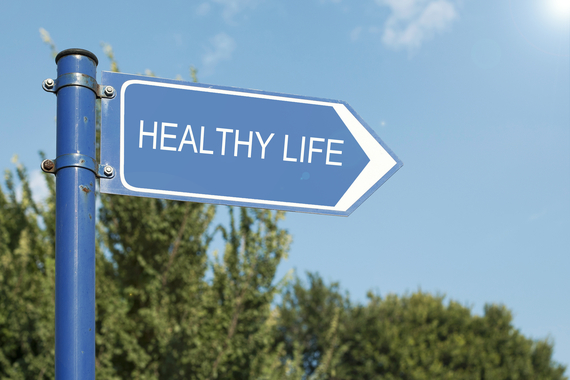Photo Credit: Ayse Ezgi Icmeli
It's likely you know a health coach. And by definition, "Health coaching, also referred to as wellness coaching, is a process that facilitates healthy, sustainable behavior change by challenging a client to listen to their inner wisdom, identify their values, and transform their goals into action."
This nouveau category of health professional can truly have a role in better health for all. Especially if trained at programs within credible universities such as Duke and Arizona State (with existing nutrition, even medical departments).
But a health coach is not synonymous with a doctor or nutritionist. Speaking of which, if you Google "health coach," the Institute for Integrative Nutrition (IIN) will appear front and center. And this is what you see when on the home page of their website:
"Welcome to the World's Largest Nutrition School"
Admittedly, I enrolled at IIN in 1999 (back when they actually had a physical location). Thinking that I could garner a nutrition education (post culinary school) that would truly qualify me to work with those who are ill, my new path was exciting. But after two days of the program, I dropped out -- the curriculum was too elementary for my tastes and the teaching was more marketing-centric than nutrition focused. Shortly thereafter, IIN requested an "exit interview" (typically something conducted between employer and departing employee -- and in cults). And the rapid realization hit me -- a different kind of school was necessary (one built on credible evidence-based science) if providing nutrition guidance to those with illness and gaining knowledge and skills respected by the medical, nutrition and dietetics community was my priority.
I have kept my eye on IIN since my departure, and have been astonished at their marketing prowess and the many bold graduates who actually believe that they are nutritionists and call themselves such. Several of my patients over the years have worked with various IIN "nutritionists," so I quickly learned how deceptive many of these folks were (and are).
Don't get me wrong, there is incredible value in the health coaching program at Institute for Integrative Nutrition if: (1) the IIN health coach can actually be just that, as defined above; (2) the IIN health coach uses this very basic education as a starting point to create health supportive products and services; (3) the very basic nutrition education is used to complement other credible health degrees or training; or (4) the person attending the program is simply looking for personal transformation.
Unfortunately, given my first-hand experiences, the school effectively combines a highly abbreviated online "nutrition" education with a MASSIVE marketing one. So much so that many graduates can be quite crafty when describing their training. And this is how the marketing language typically goes:
I am a nutritional consultant (or nutritionist) and health coach certified by SUNY Purchase and the Institute for Integrative Nutrition.
Let me translate -- this IINer did not get any degree from an academic program, rather received 43 Continuing Education Units (CEU) and a certificate from a university (CEUs are basically "points" that already credentialed health professionals need to maintain degrees; so if you go into IIN without a degree, the CEUs mean nothing). And this university has neither a nutrition nor medical department to speak of. But how would someone seeking help with health, someone vulnerable, necessarily know this? Most believe that this person earned a nutrition degree from a credible university.
While there are many graduates of this program doing truly incredible work and mindfully using their added value education, there are far too many who are misrepresenting their expertise. They have been "coached" to do so -- in fact, since this institute of "health coach education" calls itself the "largest nutrition school in the world."
Hats off to IIN for the good they are doing, but shame on them for devaluing those of us who have trained for years, even decades, to become nutritionists and dietitians, people who are credibly trained in the science of nutrition and its applications (and know what we know and honor what we don't).
So, dear readers, if you are looking to become a nutritionist or are seeking one please know that IIN won't stop deceiving, but you can become more discerning. As a start, check out their FAQ page and please:
- Understand what IIN really offers -- a health coach certificate program
See IIN for what they really are!
To stay connected with Stefanie, sign up for her blog -- bi-weekly ruminations, radio shows and recipes, and follow her on: Facebook, Twitter, and Instagram. Her book, What the Fork Are You Eating? (Tarcher/Penguin Random House) is available wherever books are sold.
